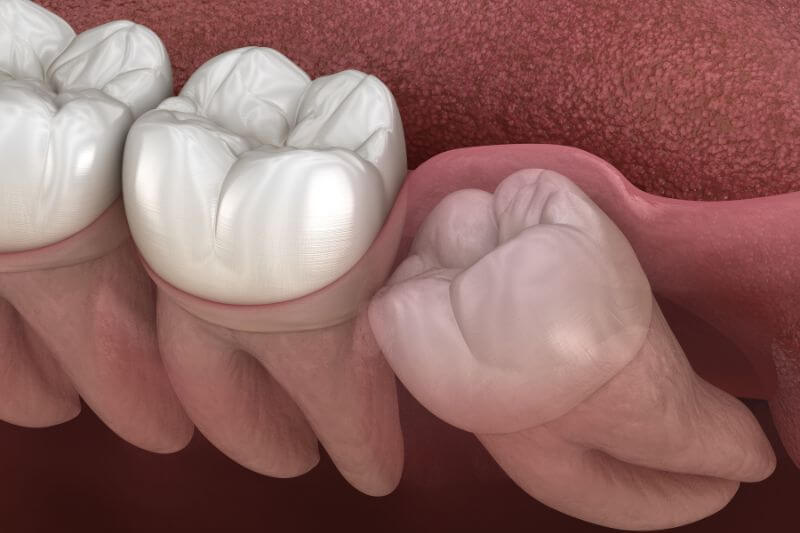Benefits of Keeping Wisdom Teeth
Wisdom teeth, also known as third molars, are the last set of teeth to develop in the human mouth. They typically erupt between the ages of 17 and 25. While many people opt to have their wisdom teeth removed, there are several benefits to keeping them when they are healthy and properly positioned. In this article, we will explore the advantages of retaining wisdom teeth and why it may be a viable option for some individuals.
Proper Dental Alignment
One of the primary benefits of keeping wisdom teeth is their potential contribution to proper dental alignment. Wisdom teeth can serve as a natural source of support, helping to maintain the alignment of adjacent teeth. When wisdom teeth are extracted, the neighboring teeth may gradually shift, leading to misalignment and potential orthodontic issues. By keeping wisdom teeth, individuals can preserve the natural balance of their dental arch.
Efficient Chewing and Digestion
Wisdom teeth are located at the back of the mouth, providing additional chewing surfaces. This can be particularly beneficial when consuming tough or fibrous foods. With the presence of wisdom teeth, individuals can efficiently chew their food, aiding in the digestion process. The extra chewing surfaces can also help prevent excessive wear and tear on the other teeth, promoting overall dental health.
Preservation of Jawbone Density
Wisdom teeth develop within the jawbone and their roots extend deep into the bone tissue. The pressure exerted by the wisdom teeth during eruption can stimulate the surrounding bone, helping to maintain the density and strength of the jawbone. This can be especially advantageous in preventing bone loss, which can occur when teeth are extracted.
Natural Backup Teeth
Wisdom teeth can serve as natural backup teeth in case of tooth loss or damage to other molars. If a molar is extracted or lost due to injury or decay, the wisdom teeth can potentially fill the gap and prevent adjacent teeth from shifting. This can help maintain the integrity of the dental arch and avoid potential complications that may arise from tooth loss.
Cost Savings
Choosing to keep healthy and properly positioned wisdom teeth can also result in cost savings. Wisdom tooth extraction is a surgical procedure that may require anesthesia and post-operative care. By avoiding unnecessary extractions, individuals can save on the expenses associated with the procedure, making it a more economical choice.

While wisdom tooth extraction is a common dental practice, it is important to consider the potential benefits of keeping these teeth when they are healthy and properly positioned. The advantages of retaining wisdom teeth include contributing to proper dental alignment, aiding in efficient chewing and digestion, preserving jawbone density, serving as natural backup teeth, and potential cost savings. However, it is crucial to consult with a dental professional to assess the individual’s specific case and determine the best course of action.
Frequently Asked Questions about the Benefits of Keeping Wisdom Teeth
1. What are wisdom teeth?
Wisdom teeth, also known as third molars, are the last set of teeth to develop in the back of the mouth.
2. Why should I keep my wisdom teeth?
Keeping your wisdom teeth can help maintain the proper alignment of your other teeth and prevent shifting things.
3. Do all wisdom teeth need to be removed?
No, not all wisdom teeth need to be removed. If they are healthy, properly positioned, and have enough space to grow, they can be kept.
4. What are the benefits of keeping wisdom teeth?
Keeping wisdom teeth can provide proper chewing function, support facial structure, and prevent bone loss in the jaw.
5. Can keeping wisdom teeth cause any problems?
In some cases, wisdom teeth can cause issues such as pain, infection, crowding, or damage to adjacent teeth. Regular dental check-ups can help monitor their condition.
6. How can I determine if my wisdom teeth should be kept?
Consult with your dentist or oral surgeon who can evaluate your specific case through X-rays and clinical examination.
7. Is it possible to remove only some of the wisdom teeth?
Yes, it is possible to remove only the problematic wisdom teeth while keeping the healthy ones.
8. Are there any age restrictions for keeping wisdom teeth?
No, there are no age restrictions. However, it is generally easier to remove wisdom teeth at a younger age when the roots are not fully developed.
9. How long does the recovery process take after wisdom teeth removal?
The recovery process typically takes about a week. However, it may vary depending on individual healing abilities and the complexity of the extraction.
10. Can wisdom teeth cause sinus problems?
In some cases, impacted wisdom teeth can lead to sinus pain, pressure, or congestion. An evaluation by a dental professional can help determine the cause of sinus issues.




